Ask a Careers Adviser – Our top careers tips and advice
See some of the questions our Careers Advisers answer and hear their advice for people thinking about their future career path.
The world of work can be an overwhelming place, even for those already within it. When we start thinking about what jobs and careers we may consider, we might end up with many more questions than clear answers or ideas.
But don’t worry because questions are the starting point. Asking questions leads to useful information that helps a career journey progress. Our Careers Advisers listen to and answer the career questions of young people and adults every day.
See some of the questions our Careers Advisers commonly get asked. Find out their best advice for people embarking on or thinking about their future career path.
“How can I know what type of job might be right for me?”
Trying to picture yourself in an actual job is a really good way of “testing” it out in your mind. Find out as much about the actual job itself, and then do a mental walkthrough. Is it a desk-based role? Does it involve working outside? Are you working with members of the public? Or young children? Think about how the elements of the job make you feel.
Work experience is a really good way to find out if you’re suitable for certain jobs. Whilst on work experience, be sure to look around at other roles that are available within the business or team and talk to as many people as you can. A good question to ask someone would be “What does a typical working day look like for you?”

“What are good ways to get work experience?”
Start by approaching people you know… and then people they know. There is a bit of a misconception around work experience, with many believing that it must be related to a job or career you ultimately want to do. This is really tricky if (like many of us) you have no idea what you want to be or have no access to people doing your chosen career.
Try and see work experience as “experience of the workplace” in general. All experience of working life is relevant and will impress future employers. It shows you are proactive and see things through. Make sure you update your CV with any work experience, noting the tasks you carried out and the skills you demonstrated throughout your placement.
If there is something specific you want to do, be persistent and try to make links with people who work in that sector. This can be via people you know, approaching businesses, or using websites like LinkedIn to connect with people.
“Where can I find careers ideas and inspiration if I’m unsure?”
There are tons of quizzes and questionnaires online that claim to “match” you to your perfect job or career. Be wary of these as many of them are set up to harvest your data and might not have gone through proper validation procedures.
Credible “matching” quizzes include the Job Explorer Database (JED) and the iCould Buzz Quiz. The quizzes ask you a series of questions to determine your preferences and to find out what motivates you. They will then produce a report which will give you some ideas of career areas or jobs that might interest you. Ask your Careers Adviser how to access these quizzes and to go through the results with you.
“If I’m not sure what my skills and strengths are, how can I find out?”
The online quizzes mentioned above can be used to help you identify what you’re good at and where your strengths lie. Another way is to ask the people who know you the best – what do they say your skills and best personality traits are? Parents, siblings, and your best friends can be useful sources of honest feedback. If you really don’t want to ask them directly, try and imagine what they would come up with if they had to write a list of your personal strengths and skills.
“I have an idea what I might like to do. How can I find out what I could earn?”
This information is readily available online. You can look up specific jobs and careers on JED – or you can use the Prospects website as well. Prospects is particularly useful for information on graduate roles. You can also look at actual job adverts – this will give you a realistic idea of the potential earnings for jobs in your local area. Perhaps more importantly, you will see how many jobs are available as well. This will give you an idea of which sectors need workers. If in doubt, your Careers Adviser has access to a great deal of information on the current labour market and will be able to help you identify “in demand” job sectors for your area.
“What are the main things I should consider when writing a CV?”
The only thing you need to consider when you write a CV is the person who will be reading it. That could be an employer, in which case your CV needs to be tailored so that it makes sense to their business and is relevant to the role you are applying for. Or you might just be writing a CV for yourself. CVs can be used as a record of your experience and qualifications. Having a CV that is up to date is really useful when it comes to filling out online application forms – all your work experience and education should be on there with relevant dates. It saves you a lot of time looking for information if it’s all there on a single document.
“What common mistakes do you see on CVs?”
Many CVs we see are either too long or too short. On average, an employer will only spend around 5-7 seconds (!) looking at your CV. It needs to be neat, concise, relevant, and in order of importance. As a rule of thumb, CVs should be no longer than 2 sides of A4. If you’re a school leaver, it’s fine to have your CV fill just one side of A4 as you won’t have masses of work experience to include. Poor spelling and grammar can mean your CV is put straight in the bin. Make sure you get someone to proofread your CV before handing it out.

“How should I prepare for an interview?”
The basics:
1) Where is the interview? Look at Google maps and plan your route. Make sure you can get there in plenty of time – it can be useful to do a test run at the same time of day as your interview. This will give you a good idea of what the traffic is like at that time.
2) Don’t be late. If you are running late, it’s best to ring ahead and explain – it might not be your fault, and most employers are sympathetic if you have a valid reason for not being on time.
3) Make sure your clothes are clean and presentable!
Preparing for the actual interview:
1) Before the interview, take some time to read through the job description (if you have one) or descriptions of similar roles. Try and think of some examples where you have demonstrated the skills they are asking for. The STAR technique is really useful for this kind of preparation – ask your Careers Adviser to help you with this.
2) Do some basic research on the company. How big is it? How many offices/sites are there? Where are they based?
3) Have some of your own questions prepared. Is there anything you want to know about the job itself? Perhaps ask about what kind of training is provided?
Remember: the person/people interviewing you are not there to “catch you out”. The fact that you have been invited for the interview, means that you already fulfil many of the essential criteria for the job. The interview is a way for employers to find out more about you, and to determine whether your skills and experience will enable you to succeed in the role.
Finally, what is your number one piece of advice for people thinking about their careers?
Don’t panic if you don’t have a big career idea, most people don’t! Try and focus on any big decisions you have coming up in the next 6 - 12 months, and tackle those first. Being open to opportunities, and curious about what is out there is the best way to approach your career journey.
Are you interested in our careers advice services for young people? Or for adults aged 19 and over? Get in touch with us on 01484 242000 or email enquiries@ckcareers.co.uk.







